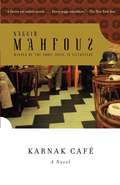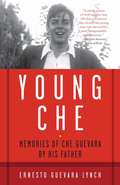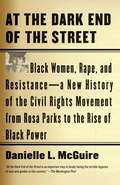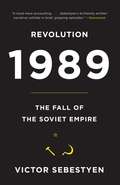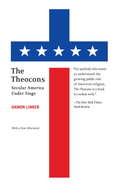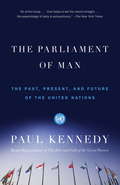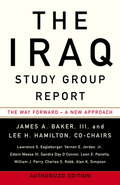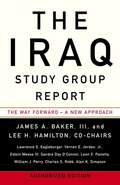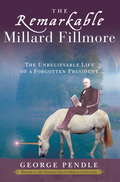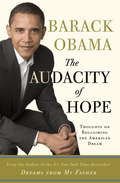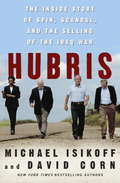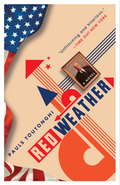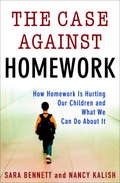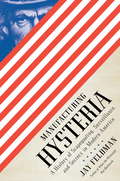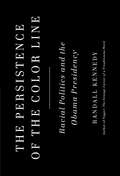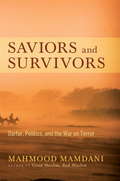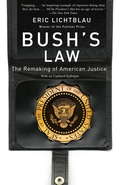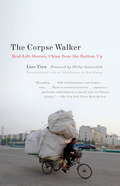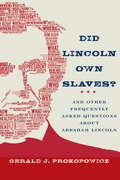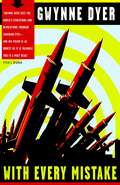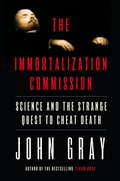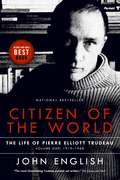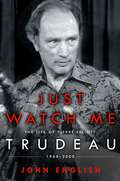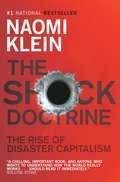- Table View
- List View
Karnak Café: A Novel
by Naguib Mahfouz Roger AllenIn this gripping and suspenseful novella from the Egyptian Nobel Prize-winner, three young friends survive interrogation by the secret police, only to find their lives poisoned by suspicion, fear, and betrayal.
Young Che: Memories of Che Guevara by His Father
by Ernesto Guevara Lynch Lucia Alvarez De ToledoAssembled from two separate books written by Che's father, this is a vivid and intimate account of the formative years of an icon. Ernesto Guevara Lynch describes the people and personal events that shaped the development of his son's revolutionary worldview, from his childhood in a bourgeois Argentinian home to the moment he joined Castro to train for the invasion of Cuba in 1956. It also includes, available for the first time in the United States, Che's diary of his trip around Northern Argentina in 1950. "Young Che" is an indispensable guide to understanding one of the twentieth century's most famous and enduring revolutionary figures.
At The Dark End of The Street: Black Women, Rape, and Resistance -- a New History of the Civil Rights Movement From Rosa Parks to The Rise of Black Power
by Danielle L. McguireRosa Parks was often described as a sweet and reticent elderly woman whose tired feet caused her to defy segregation on Montgomery's city buses, and whose supposedly solitary, spontaneous act sparked the 1955 bus boycott that gave birth to the civil rights movement. The truth of who Rosa Parks was and what really lay beneath the 1955 boycott is far different from anything previously written. In this groundbreaking and important book, Danielle McGuire writes about the rape in 1944 of a twenty-four-year-old mother and sharecropper, Recy Taylor, who strolled toward home after an evening of singing and praying at the Rock Hill Holiness Church in Abbeville, Alabama. Seven white men, armed with knives and shotguns, ordered the young woman into their green Chevrolet, raped her, and left her for dead. The president of the local NAACP branch office sent his best investigator and organizer to Abbeville. Her name was Rosa Parks. In taking on this case, Parks launched a movement that ultimately changed the world. The author gives us the never-before-told history of how the civil rights movement began; how it was in part started in protest against the ritualistic rape of black women by white men who used economic intimidation, sexual violence, and terror to derail the freedom movement; and how those forces persisted unpunished throughout the Jim Crow era when white men assaulted black women to enforce rules of racial and economic hierarchy. Black women's protests against sexual assault and interracial rape fueled civil rights campaigns throughout the South that began during World War II and went through to the Black Power movement. The Montgomery bus boycott was the baptism, not the birth, of that struggle. At the Dark End of the Street describes the decades of degradation black women on the Montgomery city buses endured on their way to cook and clean for their white bosses. It reveals how Rosa Parks, by 1955 one of the most radical activists in Alabama, had had enough. "There had to be a stopping place," she said, "and this seemed to be the place for me to stop being pushed around. " Parks refused to move from her seat on the bus, was arrested, and, with fierce activist Jo Ann Robinson, organized a one-day bus boycott. The protest, intended to last twenty-four hours, became a yearlong struggle for dignity and justice. It broke the back of the Montgomery city bus lines and bankrupted the company. We see how and why Rosa Parks, instead of becoming a leader of the movement she helped to start, was turned into a symbol of virtuous black womanhood, sainted and celebrated for her quiet dignity, prim demeanor, and middle-class propriety--her radicalism all but erased. And we see as well how thousands of black women whose courage and fortitude helped to transform America were reduced to the footnotes of history. A controversial, moving, and courageous book; narrative history at its best.
Revolution 1989: The Fall of the Soviet Empire
by Victor SebestyenRevolution 1989 is the first in-depth, authoritative account of a few months that changed the world. At the start of 1989, six European nations were Soviet vassal states. By year's end, they had all declared national independence and embarked on the road to democracy. How did it happen so quickly? Victor Sebestyen, who was on the scene as a reporter, draws on his firsthand knowledge of the events, on scores of interviews with witnesses and participants, and on newly uncovered archival material. He tells the story through the eyes of ordinary men and women as well as through the strategic moves of world leaders. He shows how the KGB helped bring down former allies; how the United States tried to slow the process; and why the collapse of the Iron Curtain was the catalyst for the fall of the entire Soviet empire.
The Theocons
by Damon LinkerGeorge W. Bush has gone out of his way to blur the line between religion and politics in America—this is acknowledged by his strongest supporters no less than by his most strident critics. The most common explanation of the president’s religious agenda points to rise of evangelical Protestantism. Yet as Damon Linker demonstrates in his groundbreakingbook, an exclusive focus on the role of evangelicals misses the heart of the story. At its core, the Bush administration’s overt religiosity represents the triumph of an ideological movement that for the past several decades has devoted itself to fashioning a theocratic governing philosophy for the United States—a governing philosophy rooted in Roman Catholicism. Led by Father Richard John Neuhaus, this group of “theoconservatives” has actively sought to roll back the division of church and state in American life. The election of 2000 brought the theocons to the peak of political power and influence in Washington. Their ideas inspire the most controversial and divisive policies of the Bush administration—policies whose ultimate goal is nothing less than the end of secular politics in America.
The Parliament of Man
by Paul KennedyIn the course of the twentieth century, there occurred a development unique in the story of humankind. States, which had defined themselves from Thucydides to Bismarck by their claims to sovereign independence, gradually came together to create international organizations to promote peace, curb aggression, regulate diplomatic affairs, devise an international code of law, encourage social development, and foster prosperity. The emergence of this network of forms of global governance was not straightforward and the debate about its role is just as heated today as it was generations ago. In this long-awaited new book, Paul Kennedy, probably the best-selling historian now living, examines this key development in the history of our century. Beginning with the earliest forms of international organisation, he goes on to trace the creation and changing role of the UN in the post-war era, and finally suggests how, in the face of new threats to security and the continued vigour of at least some nation states, the institution will need to change over the course of the 21st century, arguing that we all share the responsibility to make the only world organisation we possess work as well as possible.
The Iraq Study Group Report
by Lee H. Hamilton James A. Baker The Iraq Study GroupOn March 15, 2006, members from both parties in Congress supported the creation of the bipartisan Iraq Study Group to review the situation on the ground and propose strategies for the way forward. For more than eight months, the Study Group met with military officers, regional experts, academics, journalists, and high-level government officials from America and abroad. Participants included George W. Bush and members of his cabinet; Bill Clinton; Jalal Talaba Nouri Kamal al-Maliki; Generals John Abizaid, George Casey, and Anthony Zin Colin Powell; Thomas Friedman; George Packer; and many others. This official edition contains the Group's findings and proposals for improving security, strengthening the new government, rebuilding the economy and infrastructure, and maintaining stability in the region. It is a highly anticipated and essential step forward for Iraq, America, and the world. A PORTION OF THE PROCEEDS FROM THE PURCHASE OF THIS BOOK WILL BE DONATED TO THE NATIONAL MILITARY FAMILY ASSOCIATION, WHICH SUPPORTS FAMILIES OF ALL RANKS AND SERVICES, INCLUDING THOSE OF THE DEPLOYED, WOUNDED, AND FALLEN.
The Iraq Study Group Report
by Sandra Day O'Connor Lee H. Hamilton Lawrence S. Eagleburger Leon E. Panetta William J. Perry Charles S. Robb Alan K. Simpson James A. Baker III Vernon E. Jordan Jr. Edwin Meese IIIThe findings and proposals for improving security, strengthening the new Iraqi government, rebuilding its economy, and maintaining stability in the region.
The Remarkable Millard Fillmore
by George PendleMillard Fillmore has been mocked, maligned, or, most cruelly of all, ignored by generations of historians--but no more! This unbelievable new biography finally rescues the unlucky thirteenth U. S. president from the dustbin of history and shows why a man known as a blundering, arrogant, shallow, miserable failure was really our greatest leader. In the first fully researched portrait of Fillmore ever written, the reader can finally come face-to-face with a misunderstood genius. By meticulously extrapolating outrageous conclusions from the most banal and inconclusive of facts,The Remarkable Millard Fillmorereveals the adventures of an unjustly forgotten president. He fought at the Battle of the Alamo! He shepherded slaves to freedom on the Underground Railroad! He discovered gold in California! He wrestled with the emperor of Japan! It is a list of achievements that puts those of Washington and Lincoln completely in the shade. Refusing to be held back by established history or recorded fact, here George Pendle paints an extraordinary portrait of an ordinary man and restores the sparkle to an unfairly tarnished reputation. From the Trade Paperback edition.
The Audacity of Hope: Thoughts on Reclaiming the American Dream
by Barack ObamaIn July 2004, Barack Obama electrified the Democratic National Convention with an address that spoke to Americans across the political spectrum. One phrase in particular anchored itself in listeners' minds, a reminder that for all the discord and struggle to be found in our history as a nation, we have always been guided by a dogged optimism in the future, or what Obama called "the audacity of hope." The Audacity of Hope is Barack Obama's call for a different brand of politics--a politics for those weary of bitter partisanship and alienated by the "endless clash of armies" we see in congress and on the campaign trail; a politics rooted in the faith, inclusiveness, and nobility of spirit at the heart of "our improbable experiment in democracy." He explores those forces--from the fear of losing to the perpetual need to raise money to the power of the media--that can stifle even the best-intentioned politician. He also writes, with surprising intimacy and self-deprecating humor, about settling in as a senator, seeking to balance the demands of public service and family life, and his own deepening religious commitment.At the heart of this book is Barack Obama's vision of how we can move beyond our divisions to tackle concrete problems. He examines the growing economic insecurity of American families, the racial and religious tensions within the body politic, and the transnational threats--from terrorism to pandemic--that gather beyond our shores. And he grapples with the role that faith plays in a democracy--where it is vital and where it must never intrude. Underlying his stories about family, friends, and members of the Senate is a vigorous search for connection: the foundation for a radically hopeful political consensus. A public servant and a lawyer, a professor and a father, a Christian and a skeptic, and above all a student of history and human nature, Barack Obama has written a book of transforming power. Only by returning to the principles that gave birth to our Constitution, he says, can Americans repair a political process that is broken, and restore to working order a government that has fallen dangerously out of touch with millions of ordinary Americans. Those Americans are out there, he writes--"waiting for Republicans and Democrats to catch up with them."From the Hardcover edition.
Hubris: The Inside Story of Spin, Scandal, and the Selling of the Iraq War
by David Corn Michael IsikoffMarch 2003: The United States invades Iraq.October 2006: The world finds out why.What was really behind the U.S.-led invasion of Iraq? As George W. Bush steered the nation to war, who spoke the truth and who tried to hide it? Hubris takes us behind the scenes at the Bush White House, the CIA, the Pentagon, the State Department, and Congress to answer all the vital questions about how the Bush administration came to invade Iraq.Filled with new revelations, Hubris is a gripping narrative of intrigue that connects the dots between George W. Bush's expletive-laden outbursts at Saddam Hussein, the bitter battles between the CIA and the White House, the fights within the intelligence community over Saddam's weapons of mass destruction, the startling influence of an obscure academic on top government officials, the real reason Valerie Plame was outed, and a top reporter's ties to wily Iraqi exiles trying to start a war. Written by veteran reporters Michael Isikoff and David Corn, this is the inside story of how President Bush took the nation to war using faulty and fraudulent intelligence. It is a news-making account of conspiracy, backstabbing, bureaucratic ineptitude, journalistic malfeasance, and, especially, arrogance.From the Hardcover edition.
Piety and Politics
by Barry W. LynnThe Reverend Barry Lynn explains why the Religious Right has it all wrong. In the wake of the 2004 presidential election, the Religious Right insisted that George Bush had been handed a mandate for an ideology-based social agenda, including the passage of a “marriage amendment” to ban same-sex unions, diversion of tax money to religious groups through “faith-based initiatives,” the teaching of creationism in public schools, and restrictions on abortion. Led by an aggressive band of television preachers and extremist radio personalities, the Religious Right set its sights on demolishing the wall of separation between church and state. The Reverend Barry Lynn is a devout Christian, but this propaganda effort disturbs him deeply. He argues that politicians need to stop looking to the Bible to justify their actions and should consult another source instead: the U. S. Constitution. When the Founding Fathers of our great nation created the Constitution, they had seen firsthand the dangers of an injudicious mix of religion and government. They knew what it was like to live under the yoke of state-imposed faith. They drew up a model for the new nation that would allow absolute freedom of religion. They knew that religion, united with the raw power of government, spawns tyranny. Yet the Religious Right now seems distrustful of those principles inherent in the Constitution, viewing the separation of church and state only as a dangerous anti-Christian principle imposed upon our nation. In reality, the separation between church and state has been an important ally to religion: with the state out of the picture, hundreds of religions have grown and prospered. Religion doesn’t need the government’s assistance, any more than it is practical or appropriate for religious doctrine to be fostered in the government or taught in public schools. As an explicitly religious figure speaking out against the Religious Right, Lynn has incurred the wrath of such personalities as Pat Buchanan, Jerry Falwell, and Pat Robertson, who once said Lynn was “lower than a child molester. ” Lynn has continuously taken on these radicals of the Religious Right calmly and rationally, using their own statements and religious fervor to prove that when they attack the constitutionally mandated separation, they’re actually attacking freedom of religion. InPiety & Politics, the Reverend Barry Lynn continues the fight—educating Americans about what is at stake, explaining why it is crucial that we maintain the separation of church and state, and galvanizing us to defend the honor of our religious freedom. From the Hardcover edition.
Red Weather
by Pauls ToutonghiThe setting is Milwaukee, Wisconsin—if not America’s heart, then at least its liver—home to an array of breweries and abandoned factories and down-on-their-luck Eastern European immigrants. The year is 1989. Revolutions are sweeping through the nations of the Eastern Bloc. Communism is unraveling. And nobody feels this unraveling more piquantly than Yuri Balodis—a fifteen-year-old first-generation American living with his Latvian-immigrant parents in Milwaukee’s Third Ward. It’s a turbulent time. And when Yuri falls in love with Hannah Graham—the daring daughter of a prominent local socialist—chaos ensues. Within weeks, Yuri is ensnared by both Hannah and socialism. He joins the staff of the Socialist Worker. He starts quoting Lenin and Marx indiscriminately. His parents, of course, are horrified and deeply saddened. They try to educate him, to show him why, in their opinion, communism has ruined so many lives. But Yuri is stubborn. And his ideological betrayal will have more serious consequences than breaking his parents’ hearts. Red Weather is by turns funny and bittersweet, tinged with a rueful comic sense that will instantly remind you of the absurd complications of love. Pauls Toutonghi’s stunning debut novel is at once reminiscent of Michael Chabon’s The Mysteries of Pittsburgh and Khaled Hosseini’s The Kite Runner. From the Hardcover edition.
The Case Against Homework: How Homework Is Hurting Our Children and What We Can Do About It
by Sara Bennett Nancy KalishDoes assigning fifty math problems accomplish any more than assigning five? Is memorizing word lists the best way to increase vocabulary--especially when it takes away from reading time? And what is the real purpose behind those devilish dioramas? The time our children spend doing homework has skyrocketed in recent years. Parents spend countless hours cajoling their kids to complete such assignments--often without considering whether or not they serve any worthwhile purpose. Even many teachers are in the dark: Only one of the hundreds the authors interviewed and surveyed had ever taken a course specifically on homework during training. The truth, according to Sara Bennett and Nancy Kalish, is that there is almost no evidence that homework helps elementary school students achieve academic success and little evidence that it helps older students. Yet the nightly burden is taking a serious toll on America's families. It robs children of the sleep, play, and exercise time they need for proper physical, emotional, and neurological development. And it is a hidden cause of the childhood obesity epidemic, creating a nation of "homework potatoes. " InThe Case Against Homework, Bennett and Kalish draw on academic research, interviews with educators, parents, and kids, and their own experience as parents and successful homework reformers to offer detailed advice to frustrated parents. You'll find out which assignments advance learning and which are time-wasters, how to set priorities when your child comes home with an overstuffed backpack, how to talk and write to teachers and school administrators in persuasive, nonconfrontational ways, and how to rally other parents to help restore balance in your children's lives. Empowering, practical, and rigorously researched,The Case Against Homeworkshows how too much work is having a negative effect on our children's achievement and development and gives us the tools and tactics we need to advocate for change. Also available as an eBook From the Hardcover edition.
Manufacturing Hysteria: A History of Scapegoating, Surveillance, and Secrecy in Modern America
by Jay FeldmanA vital, engaging, and sometimes troubling story of modern America's struggle to live up to its ideals. In this ambitious and wide-ranging history, Jay Feldman takes us from the run-up to World War I and its anti-German hysteria through the September 11 attacks and Arizona's current anti-immigration movement. What we see is a striking pattern of elected officials and private citizens alike using the American people's fears and prejudices to isolate minorities (ethnic, racial, political, religious, or sexual), silence dissent, and stem the growth of civil rights and liberties. Whether it's the post-World War I persecution of radicals; the Depression-era deportations of Mexican immigrants and Mexican-Americans; the World War II internment of 112,000 ethnic Japanese along with thousands of German and Italian aliens; the Cold War campaigns against Communists, gays, and civil-rights activists; or the Vietnam-era COINTELPRO operations, we see how economic, military, and political crises have been used to curtail the rights of supposedly subversive minorities. Much of the story can be laid at the feet of J. Edgar Hoover, but Feldman goes deeper to show how these tendencies have been part of a continuous vein that runs through American life. Rather than treating this history as a series of discrete moments, Feldman considers the entire programmatic sweep on a scale no one has yet approached. In doing so, he gives us a potent reminder of how, even in America, democracy and civil liberties are never guaranteed.From the Hardcover edition.
The Persistence of the Color Line
by Randall KennedyTimely--as the 2012 presidential election nears--and controversial, here is the first book by a major African-American public intellectual on racial politics and the Obama presidency. Renowned for his cool reason vis-à-vis the pitfalls and clichés of racial discourse, Randall Kennedy--Harvard professor of law and author of the New York Times best seller Nigger: The Strange Career of a Troublesome Word--gives us a keen and shrewd analysis of the complex relationship between the first black president and his African-American constituency. Kennedy tackles such hot-button issues as the nature of racial opposition to Obama, whether Obama has a singular responsibility to African Americans, electoral politics and cultural chauvinism, black patriotism, the differences in Obama's presentation of himself to blacks and to whites, the challenges posed by the dream of a postracial society, and the far-from-simple symbolism of Obama as a leader of the Joshua generation in a country that has elected only three black senators and two black governors in its entire history. Eschewing the critical excesses of both the left and the right, Kennedy offers a gimlet-eyed view of Obama's triumphs and travails, his strengths and weaknesses, as they pertain to the troubled history of race in America.From the Hardcover edition.
Saviors and Survivors: Darfur, Politics, and the War on Terror
by Mahmood MamdaniThose who insist on seeing the horrific violence in Darfur as a conflict between "Arabs" and "Africans" and as a genocide are failing to look at the historical and political context of the violence and are serving to delay political reconciliation with their calls for military intervention and their emphasis on retributive justice. So argues Mamdani (anthropology and politics, Columbia U. ), who urges us to rethink key assumptions about traditions, race, tribe, and locality in Darfur in order to better understand the conflict and how to move towards political reconciliation and peace. He sets his discussion of these issues within the context of colonial and nationalist historiographies of Sudan and Darfur, seeking to debunk the simplistic understanding of the violence as a conflict between Arab settler rulers and African natives. He argues instead that the violence should be seen as product of a land tenure system that set different tribes interests' against one another, sometimes along an Arab/non-Arab axis and sometimes along an Arab/Arab axis. Annotation ©2010 Book News, Inc. , Portland, OR (booknews. com)
Bush's Law: The Remaking of American Justice
by Eric LichtblauIn the aftermath of 9/11, President Bush declared that the struggle against terrorism would be nothing less than a war--a war that would require new tools and a new mind-set. As legal sanction was given to covert surveillance and interrogation tactics, internal struggles brewed over programs and policies that threatened to tear at the constitutional fabric of the country. Bush's Law is the alarming account of the White House's efforts to prevent the publication of Eric Lichtblau's exposé on warrantless wiretapping--and an authoritative examination of how the Bush administration employed its "war on terror" to mask the most radical remaking of American justice in generations.
The Corpse Walker
by Liao YiwuThe Corpse Walker introduces us to regular men and women at the bottom of Chinese society, most of whom have been battered by life but have managed to retain their dignity: a professional mourner, a human trafficker, a public toilet manager, a leper, a grave robber, and a Falung Gong practitioner, among others. By asking challenging questions with respect and empathy, Liao Yiwu managed to get his subjects to talk openly and sometimes hilariously about their lives, desires, and vulnerabilities, creating a book that is an instance par excellence of what was once upon a time called "The New Journalism." The Corpse Walker reveals a fascinating aspect of modern China, describing the lives of normal Chinese citizens in ways that constantly provoke and surprise.From the Trade Paperback edition.ws (conducted between 1990 and 2003) with sensitivity and patience, working both from notes and from his own memory of these remarkable conversations. The result is an idiosyncratic, powerful, and richly revealing portrait of a people, a time, and a place we might otherwise have never known.From the Hardcover edition.
Did Lincoln Own Slaves?
by Gerald J. ProkopowiczIn the bicentennial year of Lincoln's birth, here is the one indispensable book that provides all you need to know about our most revered president in a lively and memorable question-and-answer format.You will learn whether Lincoln could dunk a basketball or tell a joke. Was he the great emancipator or a racist? If he were alive today, could he get elected? Did he die rich? Did scientists raise Lincoln from the dead? From the seemingly lighthearted to the most serious Gerald Prokopowicz tackles each question with balance and authority, and weaves a complete, satisfying biography that will engage young and old, scholars and armchair historians alike.From the Trade Paperback edition.tion?) or from today's tabloids (Did doctors really raise Lincoln from the dead?), the questions in Did Lincoln Own Slaves? illuminate what people really want to know about the past.Prokopowicz has organized the questions along the time line of Lincoln's life to give us a portrait of the sixteenth president unlike any we have had before. His authoritative, often surprising responses illuminate facets of Lincoln's life, work, and legacy about which people remain endlessly curious.From the Hardcover edition.
With Every Mistake
by Gwynne DyerThis essential collection contains the best of Gwynne Dyer's writing on the post-September 11 world.Since 1973, writer, historian and filmmaker Gwynne Dyer has written a widely syndicated newspaper column on international affairs, regularly published in 45 countries. With Every Mistake is not only a collection of the very best of Dyer's recent work, but an examination of how, time and again, the media skews fact and opinion, wielding formidable influence on how we all shape our own thoughts. And why is so much of the information wrong? Is it herd instinct, official manipulation, robber-baron owners with ideological obsessions -- or just the conflict between the inherently bitty, short-term nature of news reporting and analysis and the longer perspectives needed to understand what is actually going on? How much misinformation stems from simple ignorance and laziness?With Every Mistake combines an examination of how powerful owners mould the agendas of the press with a self-critique of Dyer's own columns from the three and a half years between 9/11 and the January 2005 election in Iraq. How hard is it to get things right, and why do so many people in the media get things wrong?From the Hardcover edition.
The Immortalization Commission
by John GrayA great philosopher will change the way you think about your life.For most of human history, religion provided a clear explanation of life and death. But in the late 19th and early 20th centuries new ideas -- from psychiatry to evolution to Communist -- seemed to suggest that our fate was now in our own hands. We would ourselves become God.This is the theme of a remarkable new book by one of the world's greatest lving philosophers. It is a brilliant and frightening look at the problems and opportunities of a world coming to grips with humankind's now solitary, unaided place in the universe. Gray takes two major examples: the belief that the science-backed Communism of the new USSR could reshape the planet, and the belief among a group of Edwardian intellectuals -- popularized through mediums and automatic writing -- that there was a non-religious form of life after death.Gray presents an extraordinary cast of philosophers, journalists, politicians, charlatans and mass murderers, all of whom felt driven by a specifically scientific and modern world view. He raises a host of fascinating questions about what it means to be human. The implications of Gray's book will haunt its readers for the rest of their lives.From the Hardcover edition.
Citizen of the World: The Life of Pierre Elliott Trudeau, 1919-1968
by John EnglishOne of the most important, exciting biographies of our time: the definitive, major two-volume biography of Pierre Elliott Trudeau - written with unprecedented, complete access to Trudeau's enormous cache of private letters and papers.Bestselling biographer John English gets behind the public record and existing glancing portraits of Trudeau to reveal the real man and the multiple influences that shaped his life, providing the full context lacking in all previous biographies to-date. As prime minister between 1968 and 1984, Trudeau, the brilliant, controversial figure, intrigued Canadians and attracted international attention as no other Canadian leader has ever done. Volume One takes us from his birth in 1919 to his election as leader in 1968.Born into a wealthy family in Montreal, Trudeau excelled at the best schools, graduating as a lawyer with conservative, nationalist and traditional Catholic views. But always conscious of his French-English heritage, desperate to know the outside world, and an adventurer to boot, he embarked on a pilgrimage of discovery - first to Harvard and the Sorbonne, then to the London School of Economics and, finally, on a trip through Europe, the Middle East, India and China. He was a changed man when he returned - socialist in his politics, sympathetic to labour, a friend to activists and writers in radical causes. Suddenly and surprisingly, he went to Ottawa for two mostly unhappy years as a public servant in the Privy Council Office. He frequently shocked his colleagues when, on the brink of a Quebec election, for example, he departed for New York or Europe on an extended tour. Yet in the 1950s and 60s, he wrote the most important articles outlining his political philosophy.And there were the remarkable relationships with friends, women and especially his mother (whom he lived with until he was middle-aged). He wrote to them always, exchanging ideas with the men, intimacies with the women, especially in these early years, and lively descriptions of his life. He even recorded his in-depth psychoanalysis in Paris. This personal side of Trudeau has never been revealed before - and it sheds light on the politician and statesman he became.Volume One ends with his entry into politics, his appointment as Minister of Justice, his meeting Margaret and his election as leader of the Liberal Party and Prime Minister of Canada. There, his genius and charisma, his ambition and intellectual prowess, his ruthlessness and emotional character and his deliberate shaping of himself for leadership played out on the national stage and, when Lester B. Pearson announced his retirement as prime minister in 1968, there was but one obvious man for the job: Pierre Trudeau.In 1938 Trudeau began a diary, which he continued for over two years. It is detailed, frank, and extraordinarily revealing. It is the only diary in Trudeau's papers, apart from less personal travel diaries and an agenda for 1937 that contains some commentary. His diary expresses Trudeau's own need to chronicle the moments of late adolescence as he tried to find his identity. It begins on New Year's Day 1938 with the intriguing advice: "If you want to know my thoughts, read between the lines!"-from Citizen of the WorldFrom the Hardcover edition.
Just Watch Me: The Life of Pierre Elliott Trudeau, 1968-2000
by John EnglishThis magnificent second volume, written with exclusive access to Trudeau's private papers and letters, completes what the Globe and Mail called "the most illuminating Trudeau portrait yet written" -- sweeping us from sixties' Trudeaumania to his final days when he debated his faith.His life is one of Canada's most engrossing stories. John English reveals how for Trudeau style was as important as substance, and how the controversial public figure intertwined with the charismatic private man and committed father. He traces Trudeau's deep friendships (with women especially, many of them talented artists, like Barbra Streisand) and bitter enmities; his marriage and family tragedy. He illuminates his strengths and weaknesses -- from Trudeaumania to political disenchantment, from his electrifying response to the kidnappings during the October Crisis, to his all-important patriation of the Canadian Constitution, and his evolution to influential elder statesman.From the Hardcover edition.
The Shock Doctrine: The Rise of Disaster Capitalism
by Naomi KleinThe shock doctrine is the unofficial story of how the "free market" came to dominate the world, from Chile to Russia, China to Iraq, South Africa to Canada. But it is a story radically different from the one usually told. It is a story about violence and shock perpetrated on people, on countries, on economies. About a program of social and economic engineering that Naomi Klein calls "disaster capitalism."Based on breakthrough historical research and 4 years of reporting in disaster zones, Klein explodes the myth that the global free market triumphed democratically, and that unfettered capitalism goes hand-in-hand with democracy. Instead, she argues it has consistently relied on violence and shock, and reveals the puppet strings behind the critical events of the last 40 years."The shock doctrine" is the influential but little understood theory that in order to push through profoundly unpopular policies that enrich the few and impoverish the many, there must be a collective crisis or disaster—real or manufactured. Klein vividly traces the origins of modern shock tactics to the economic lab of the University of Chicago under Milton Friedman in the 60s, and beyond to the CIA-funded electroshock experiments at McGill in the 50s which helped write the torture manuals used today at Guantanamo Bay. She details the events of the recent past that have been deliberate theatres for the shock doctrine: among them, Pinochet’s coup in Chile in 1973, the Tiananmen Square Massacre in 1989, the collapse of the Soviet Union in 1991; and, more recently, the September 11 attacks, the invasion of Iraq, the Asian tsunami and Hurricane Katrina. And she shows how—in the hands of the Bush Administration—the "war on terror" is a thin cover for a thriving destruction/reconstruction complex, with disasters, wars and homeland security fuelling a booming new economy. Naomi Klein has once again written a book that will change the way we see the world.
